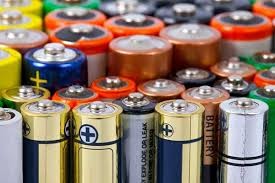Nickel is a highly versatile metal bearing many desirable properties, such as corrosion resistance, high-temperature resistance and significant strength. It’s not exclusively used for fortifying other materials, either. Nickel is also used for chemical processes and batteries, and this versatility makes it a great metal choice in many applications, including.

Composites
Nickel’s properties are perfect for composites thanks to the metal’s high levels of wear resistance, non-stick properties, and lubricity – useful qualities to add to already strong metals and alloys, and ideal for automotive parts and electronics. Its use in stainless steel creates rust and corrosion resistance in construction, cutlery, and car parts.
More information and services for nickel composites can be found online, from surface treatment specialists such as poeton.co.uk/advanced-treatments/apticote-460-nickel-composites.
Alloys
Don’t get these mixed up with composites. Alloys are a combination of elements (including at least one metal) with metallic properties, whilst composites combine materials whilst keeping them all physically distinct.

Reinforced concrete, for example, uses steel, cement and gravel, but keeps the materials distinct. Steel, an alloy of iron and carbon, has mostly metallic properties. The differences are highly nuanced, and we can’t cover them all here without boring you, but more information can be found here:
]
Nickel is great for alloys, being combined with copper and chromium for use in aerospace and marine industries thanks to its strength and resistance against harsh conditions (the pressure in space and underwater, for example).
Catalysts
Nickel is also used in chemical reactions, great for refining in petrochemical work, and even hydrogenation for foods, helping convert vegetable oil into a semi-solid form for use in spreads and sweets. Because nickel can speed up chemical reactions without being consumed in the process, it is highly valuable and more cost-effective than its counterparts of palladium and platinum.
Batteries
Rechargeable batteries often rely on nickel, and even regular lithium batteries have begun to include nickel in their makeup. Nickel allows for more storage capacity and energy density in batteries, which can improve their efficiency and cost-effectiveness. This is invaluable for smartphones and car batteries, allowing for longer stretches without charging or replacement.
